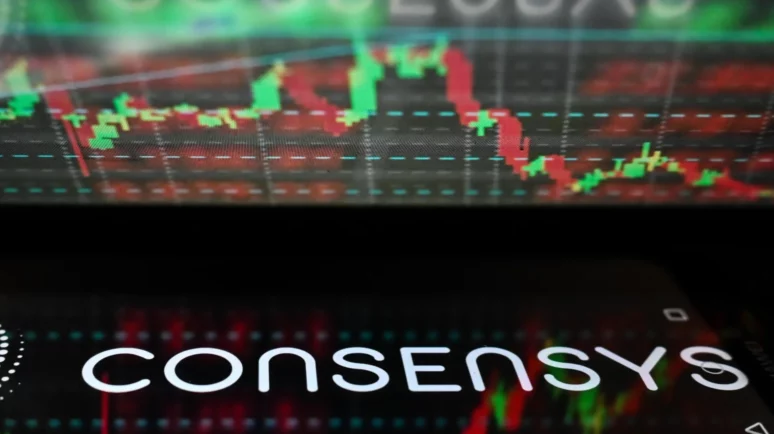XRP ETFs Becoming Less Likely as Ethereum ETFs Delayed While SEC Drags Heels on Approval

The SEC is pushing back its decisions on approving spot Ethereum ETF proposals but how it will impact XRP ETFs? | Credit: Pixabay
Key Takeaways
- The SEC is pushing back its decisions on approving spot Ethereum ETFs from Franklin Templeton and Grayscale.
- There remains some hope for the approval of XRP-based ETFs, although the delay to ETH ETFs will not have helped matters.
- Standard Chartered Bank joins analysts who now believe the SEC is unlikely to approve Ethereum ETFs in May 2024.
The United States Securities and Exchange Commission (SEC) is postponing its decision on the approval of two proposed spot Ethereum exchange-traded funds (ETFs) by Grayscale and Franklin Templeton.
In March 2024, the SEC also postponed decisions on Ethereum ETF applications from major firms like BlackRock, Fidelity, and VanEck. Meanwhile, the news has an impact on suggestions that the SEC could, in time, approve an XRP-based ETF.
SEC Delays Decision on Franklin Ethereum ETF, Decision by June 11th
The agency has extended its timeline for making a decision on the Franklin Ethereum ETF to June 11, 2024, at which point the SEC could either approve, disapprove, or initiate proceedings regarding the proposal.
The extension was confirmed in an SEC filing that said :
“The Commission finds it appropriate to designate a longer period within which to take action on the proposed rule change so that it has sufficient time to consider the proposed rule change and the issues raised therein.”
Franklin Templeton submitted its S-1 registration statement for the Franklin Ethereum ETF in February, proposing a fund that aims to track the price of Ether closely. The firm announced that Coinbase Custody Trust Company and the Bank of New York Mellon would act as custodians for the fund.
On a similar note, the SEC has postponed its decision on the Grayscale Ethereum Trust proposal, which was also reviewed on Tuesday. This delay aligns with the SEC’s recent pattern of extending review periods for cryptocurrency-based ETFs.
In October, Grayscale, along with NYSE Arca, submitted a Form 19b-4 to convert its existing Grayscale Ethereum Trust into a spot Ethereum ETF. This move parallels Grayscale’s earlier efforts with its Bitcoin trust. Following a successful court ruling, Grayscale managed to convert its Bitcoin trust into a spot Bitcoin ETF, with the SEC granting its approval in January.
Hopes High for XRP ETF Despite Legal Hurdles and Analyst Doubt
The recent approval of several spot Bitcoin ETFs in the United States has ignited excitement among XRP supporters. The community is now hopeful Ripple’s XRP could have a similar ETF.
However, one should not forget that Ripple and the SEC are in a lengthy legal conflict, with Ripple achieving three partial victories in court last year. Notably, in July, Federal Judge Analisa Torres ruled secondary sales of Ripple’s XRP did not constitute an offer of investment contracts.
Earlier this year, cryptocurrency exchange Gemini sparked widespread speculation with cryptic tweets involving XRP. The online community buzzed with anticipation, many hoping for the announcement of a spot XRP ETF. However, the excitement was short-lived. Gemini revealed it would soon offer XRP perpetual contracts instead, dashing the hopes of those awaiting an ETF.
Bloomberg ETF analyst James Seyffart also expressed skepticism about the likelihood of an XRP ETF launching soon. In an interview on January 11 with Thinking Crypto, Seyffart remarked that an XRP ETF was a “remote possibility”. He also noted it was unlikely to materialize this year due to the ongoing SEC lawsuit against Ripple.
Standard Chartered Joins Chorus of Delay Predictions
Standard Chartered Bank, previously optimistic about the prospects of Ethereum ETFs, has revised its view. The bank now believes the SEC is unlikely to approve these funds in May.
Meanwhile, Geoffrey Kendrick, head of forex and digital assets research at Standard Chartered, expressed in a recent report that they had initially expected the SEC to approve Ethereum ETFs by May 23. This was based on the assumption that the approval process for Ethereum would mirror that of Bitcoin ETFs, which were approved in January.
He hoped there there would be a similar constructive dialogue between the SEC and the ETF applicants. However, Kendrick noted that such dialogue has not occurred, or at least not been publicly disclosed, leading him to believe approval by May 23 was unlikely. He appears to have been proven correct.


